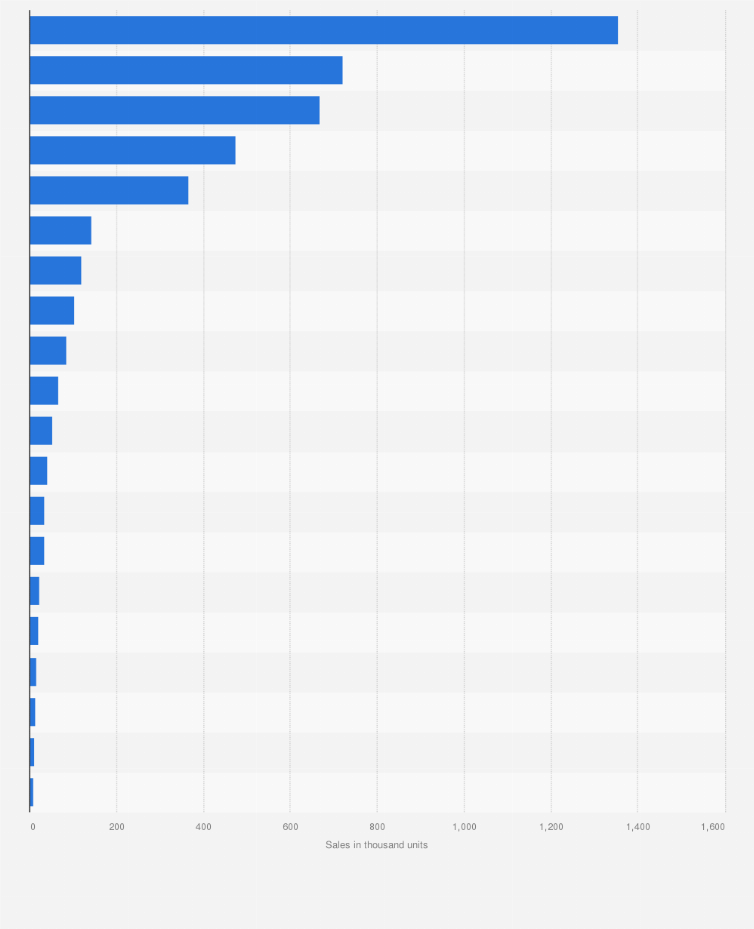Sales volume of leading car brands in Japan 2024
In 2024, Toyota was the leading car manufacturer in Japan, selling around 1.36 million vehicles domestically. The overall car sales volume decreased by a few hundred thousand units, compared to the previous year, reaching about 4.42 million exemplars.
Which car brands and models are most popular among Japanese customers?
All car manufacturers in the upper half of the ranking were Japanese brands. It is noteworthy that the top three foreign brands listed among the country’s major market players were German car manufacturers (Mercedes-Benz, BMW, and Volkswagen). However, none of those three made it in the top ten ranks, indicating that Japanese consumers value German engineering, yet they choose to invest primarily in domestic vehicle technology.
Japan’s preference for domestic car brands becomes even more apparent when looking at the country’s bestselling car models. The ranking exclusively listed car models of domestic manufacturers. The two three positions were occupied by Toyota models: the Corolla, was followed by the Yaris, and the Sienta. Besides Toyota, Nissan, and Honda were the only other brands within the top ten passenger car ranks.
What are the future car trends in Japan?
Japan had been increasingly branching out in electric vehicle technologies. The next-generation vehicle market is divided into battery electric vehicles (BEV), hybrid electric vehicles, plug-in hybrids (PHEV), clean diesel vehicles, and fuel cell electric vehicles (FCEV). Japanese manufacturers seem to favor gasoline-electric hybrids over all-electric vehicles for now. Although Toyota's statement in December 2021 to accelerate the shift towards BEVs attracted much attention, the industry remains prudent towards an all-electric centered lineup. One argument is that many customers worldwide still lack the infrastructure or demand for BEVs despite endeavors in Europe and North America.
The Japanese government shares the prudence towards BEVs: the shift to full EVs could damage the domestic automotive parts industry, since EVs require fewer parts than hybrid alternatives. Accordingly, the announced goal is to prohibit by 2035 only the sale of new cars solely propelled by a gasoline engine. In the short and medium run, the sale of Japanese hybrids will likely expand domestically and worldwide, therefore. Eventually, hydrogen FCEV besides BEVs might play into Japanese strategies.













